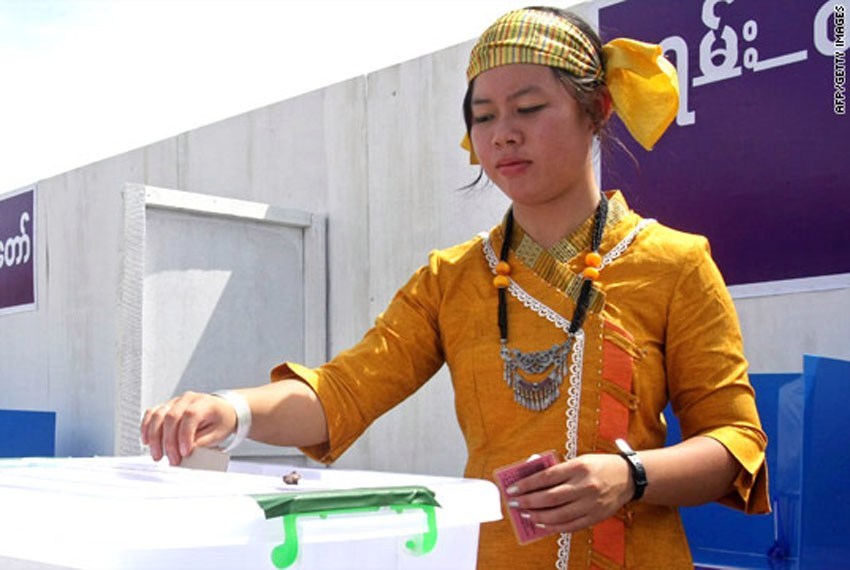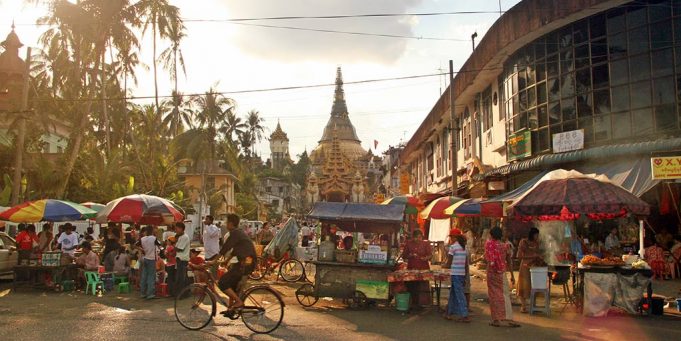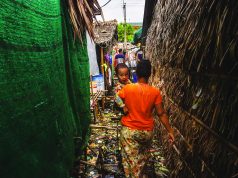On August 15, the International Foundation for Electoral Systems (IFES) organized the 2020 Elections Youth Innovation Summit with the involvement of over 160 young participants and youth association leaders representing the Union Election Commission, media, CSOs and technology sector. The initiative was born of having an estimated 5 million first-time voters aged between 18 and 22 for the 2020 election to address the challenges related to youth participation in elections in Myanmar. The summit resulted in seven projects to work towards a goal of inclusive electoral process by getting both financial support and the access to IFES election educating campaigns. For our populations are getting younger with more than 60% of us under 40 years, the voter education campaign will work as a wakeup call for senior politicians and youths from this third General Election to see embedded sides of emerging democracy.
Myanmar young people have contributed to political change throughout Myanmar’s history, which are evident in years of socialist rule in the late 1980s, the 88 popular uprising and the subsequent years of political repression. Political reforms that began in 2011 that included improvements in freedoms of association allowed the country to have exposure to global norms and ideas related to what a democratic transition should look like. In today’s time, a generation having grown up during the period of political change and economic reforms, there is a tendency to view them as beneficiaries or recipients of peace programming rather than independent peace promoting individuals like their senior counterparts.
Each generation develops values based on events that happened while they were growing up. The issues affecting today’s youths no longer share commonalities with that of their seniors. Young people have undergone new multifaceted challenges in the evolving socio-political context. The engagement of youth in the political process and building up an inclusive society is a reflection of their day-to-day challenges such as poor quality or access to education, lack of job opportunities, drugs, violence and social media misuse, which can be diverse in terms of gender, environment, socio-economic background and religious belief. Being a deeply divided society, Myanmar is still a home to ongoing, organized violences and intercommunal conflicts. With many and long-lasting violent conflicts and oppression of ethnic minorities in large parts of the country, the situation for youth from conflict affected ethnic areas, many displaced internally or in refugee camps in bordering countries, need special attention. Young people in Lashio are experiencing lower access to education and development opportunities. Young people in Yangon, conversely, face urbanization, security issues and high rates of inward migration from across the country, according to reports from local media.
Since 2012, youth representatives have organised the Myanmar Youth Forum (MYF) bi-annually to discuss human rights and democracy, the environment, drugs and peace, as well as the development of a national youth policy. In April 2016, youth organisations such as the National Youth Congress (NYC)—created the first MYF—were invited by the government to give input to the process of developing such a policy. After the third MYF in June 2016, they held local and regional level youth forums, gathering diverse youth perspectives to feed into this process. The National Youth Policy was adopted in the fall of 2017. In July 2016, around 800 youth from 26 ethnic groups also developed recommendations regarding the national peace process at the Ethnic Youth Conference in Panglong. Participants formed the National Ethnic Youth Alliance to advocate for a seat at the Union Peace Conference, commonly referred to as the 21st Century Panglong Conference. At the same time, youth show as much proactivity as senior citizens for lobbying and activism, particularly in societies with less robust democratic traditions.

This year, general election will have to see young candidates aged under 40 from ethic parties which includes Kachin State People’s Party (KSPP), Shan Nationalities League for Democracy (SNLD), Arakan National Party (ANP), Mon Unity Party (MUP), Kayah State Democratic Party (KySDP), Chin National League for Democracy (CNLD), according to election news by The Irrawaddy. According to The Irrawaddy, these young politicians worked too hard to prove their will and commitment to goals due to age and experiences and would continue to earn trust and credibility through actions and implementation. Despite downplay of the prospects of young politicians being successful in election, youths are still plenty of will and remain committed to society growth.
Still, many youths left remained apathetic to participation in political movements. According to ASEAN Youth report by The ASEASN Ministers of Youth, youths in many countries in the region appear to be in danger of becoming disconnected from conventional political structures and processes such as political parties, elections and parliaments. In many East and South-East Asian societies, traditional mechanisms of representation, including informal community based campaign organizations, seem to have lost their appeal among the younger population. In others, elders themselves including the news media are biased and partisan. The report suggests that the challenge for democracy in the region lies in opening up new spaces and establishing innovative mechanisms for the constructive engagement of youth in the formal political process.
Many young people are unlikely to have committed to political views or ideologies, and their decision-making may just be governed by issues affecting them and their peers. What are their aspirations, fears and concerns, their values and worldviews? Jobs, opportunities, social issues, and the environment, for example, weigh heavily on their young shoulders. In developing a youth mobilization, it is to make most of rapid growth in internet usage to enhance information sharing and movementsIn Thailand, National Children and Youth Council and other provincial councils have made communications among youths through blog, webboard, and facebook, etc. The only way that youth can integrate in the structure of power in the current politics is to create their sphere, work towards their own agenda and possess bargaining power. . An estimated 22 million people in Myanmar are registered on Facebook – of which over 60% are between 19-34 years old as of 2019 data. Though there is a wide-spread use of Facebook, the access to critical information is still limited, at the same time, miscommunication and misunderstanding are further exacerbated by hate-speech across the country and biased narratives at social media.
According to Dag Hammarskjöld Foundation research paper, poor quality of the formal education system and lack of cultivating critical and independent thinking skills hinder youths’ role of becoming active agents for change in society. As a result, young people lack capacity or self-confidence to effectively engage with decision makers and push for their viewpoints in policy processes. There is a danger of young people becoming vulnerable to political exploitation that can be utilized to trigger violence through social media. Despite having drawbacks of cyberspace, its role becomes essential in sharing and connecting with people where in-person dialogue cannot happen very often due to Covid-19 outbreak. The authorities should establish platforms and channels for youth to participate in formal political and peace processes in the post-Covid world.
A graduate driving for a ride-hailing service or delivering food obviously suggests work force and an admirable quality, but it also indicates structural issues in the economy, the education system or human resource development policies. How long can these loopholes in the society be overlooked? Yes, it will be forever unless youths are empowered to fight for the future belonging to them or perhaps until the pandemic has transformed the world.










